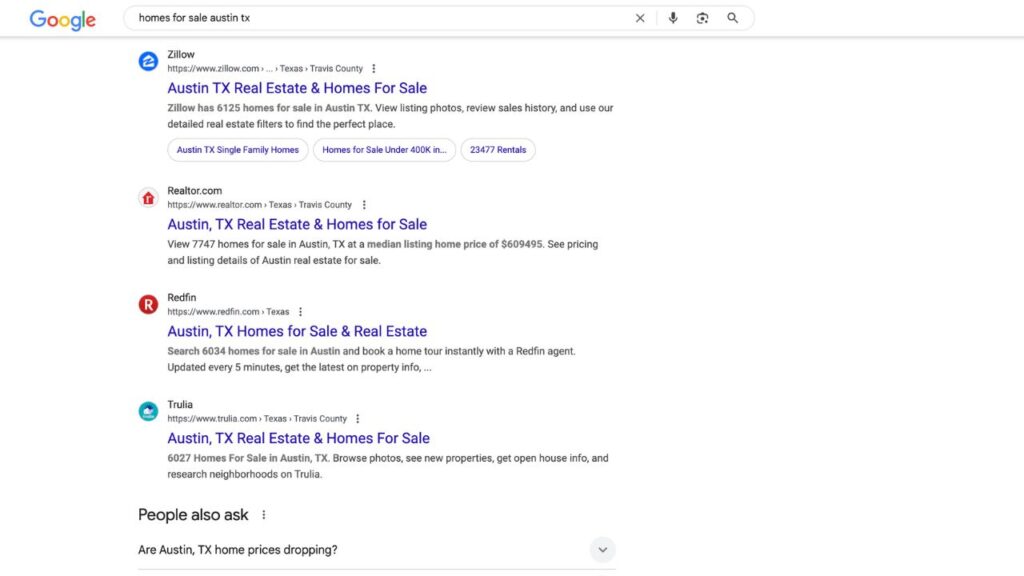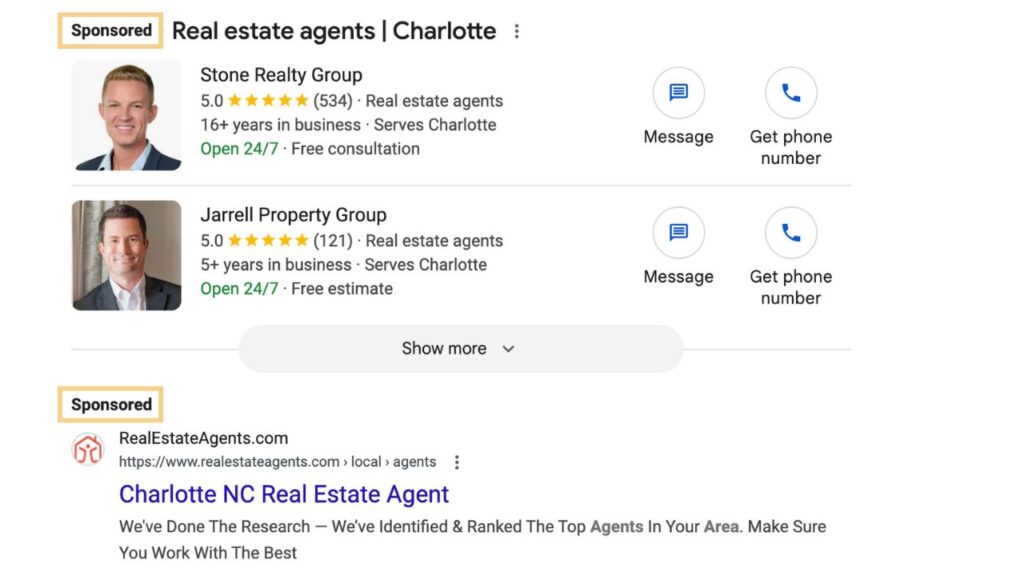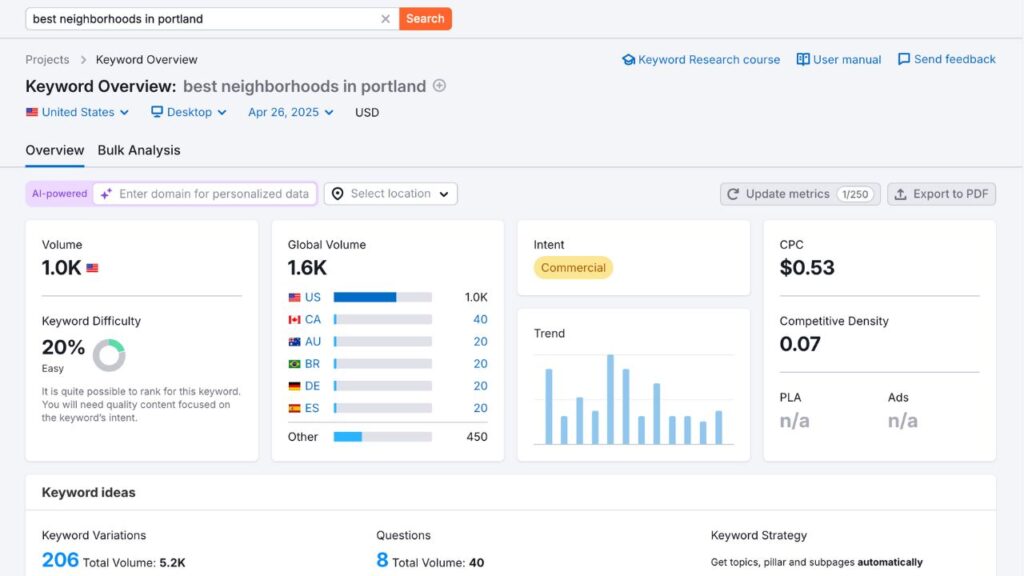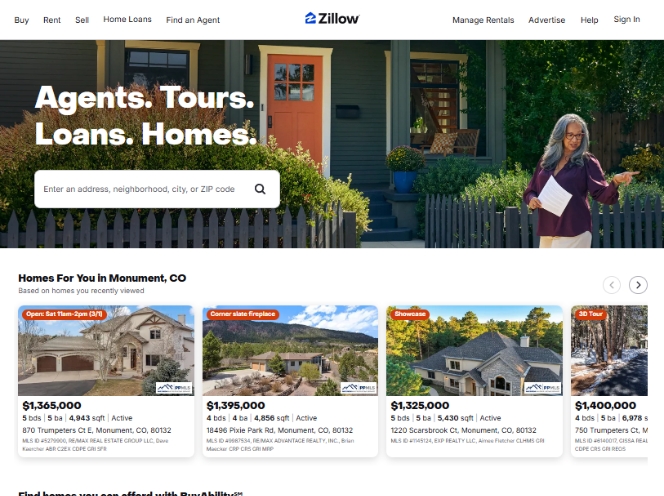Imagine a steady stream of potential clients finding your real estate website exactly when they need your services – without you paying a dime for each click. This powerful flow of visitors is called organic traffic, generated when users click on your website’s link from the search engine results page (SERP). It is the lifeblood of successful online businesses and the secret weapon of thriving real estate professionals.
As search engines process over 16 billion queries daily, mastering organic traffic represents perhaps the greatest opportunity for sustainable business growth in the digital realm. But what is organic traffic exactly, and why have the most successful real estate agents, teams, and brokerages made it a cornerstone of their marketing strategy?
Introduction to Organic Traffic

Organic traffic refers to visits that come to your site via unpaid search results. When potential clients search for information related to real estate on Google, Bing, or other search engines and click on a non-paid listing in the search engine results pages (SERPs), they generate organic search traffic to your website. This traffic comes naturally through search engine optimization (SEO) efforts rather than through paid advertising channels. Better rankings for competitive keywords achieved through SEO directly result in increased organic traffic, making it a critical focus for digital marketing success.
The fundamental concept is simple: organic traffic consists of visitors who find your website through search engines without you having to pay directly for their click. These visitors are actively searching for information, services, or properties that your real estate business offers. When your website appears in the organic search results that match their query, you have an opportunity to connect with highly qualified leads without paying for each click.
Unlike paid search traffic that comes from search ads or Google Ads campaigns, organic traffic doesn’t require ongoing payment to maintain visibility. Once your site ranks well for relevant keywords, you can continue receiving traffic without the per-click costs associated with paid search ads or other paid traffic sources.
Benefits of Organic Website Traffic
For real estate professionals, generating consistent organic traffic offers numerous advantages that directly impact business growth and sustainability:
Trust and Credibility
People generally trust search engines, which increases the effectiveness of organic traffic. When your real estate website appears at the top of search results, it gains immediate credibility in the eyes of potential clients. This inherent trust factor makes organic visitors more likely to engage with your content and consider your services.
High User Intent
When someone finds your site through organic search, they’re actively looking for what you offer, indicating high intent. This makes organic traffic particularly valuable because these visitors have already expressed interest in real estate-related information through their search query. They aren’t randomly stumbling upon your site—they’re purposefully seeking solutions that you provide.
Cost-Effectiveness
Organic traffic has the potential to generate a large volume of clicks without incurring additional costs beyond your initial SEO investment. Unlike paid traffic, which incurs a significant traffic cost, organic traffic does not require ongoing payment to maintain visibility. While paid advertising stops delivering results as soon as you stop paying for ads, organic search traffic is a long-term strategy that compounds over time. At Real Estate Rankers, we’ve helped numerous real estate clients build sustainable traffic sources that continue delivering value long after the initial optimization work.
Higher Conversion Rates
Organic traffic can lead to higher conversion rates than other traffic types because visitors are actively searching for solutions. These visitors typically have stronger purchase intent compared to those from other traffic sources, making them more likely to take desired actions on your website such as requesting property information, signing up for market updates, or scheduling a consultation.
Authority Building
Organic traffic can enhance a website’s authority and visibility, leading to long-term benefits in search engine rankings. As more users visit your site through organic search and engage with your content, search engines recognize your site as a valuable resource, which can further improve your rankings and drive even more organic traffic.
Partner With
SEO Experts Who Get Results

Understanding Organic vs. Other Traffic Sources
To fully appreciate the value of organic search traffic, it’s essential to understand how it differs from other traffic sources and how they complement each other in a comprehensive digital marketing strategy:
Organic Traffic vs. Paid Traffic

While organic traffic visits come from appearing in standard search results, paid traffic visits come from pay-per-click ads on results pages. The key differences include:
- Cost Structure: Organic traffic doesn’t require payment per click, while paid search traffic incurs costs each time someone clicks your ad.
- Timeline: Organic traffic takes time to build but provides lasting benefits, whereas paid search campaigns can deliver almost immediate results but stop producing once you stop paying.
- Long-term Value: Unlike paid advertising, organic search traffic is a long-term strategy that compounds over time, building a lasting asset for your real estate business.
- Trust Factor: Users often place more trust in organic listings compared to paid ads, which can influence click-through rates and conversions.
Organic Traffic vs. Direct Traffic
Direct traffic growth occurs when users type your URL directly into their browser or access your site via a bookmarked link. While direct traffic indicates strong brand awareness and loyalty, organic traffic helps you reach new potential clients who may not yet be familiar with your real estate business.
Organic Traffic vs. Social Media Traffic
Traffic from platforms like Facebook, Instagram, or LinkedIn provides value but differs from organic search traffic in several important ways:
- Intent: Social media users aren’t necessarily actively searching for real estate services, whereas organic traffic comes from people specifically seeking information related to your services.
- Longevity: Content on social media tends to have a shorter lifespan, while content optimized for search engines can continue generating traffic for months or years.
- Targeting: Social media traffic targets based on demographic and interest data, while organic traffic targets based on search intent and keyword relevance.
Organic Traffic vs. Referral Traffic
Referral traffic comes from other websites that link to your real estate site. While this traffic source is valuable and often highly relevant, organic traffic typically scales better and provides a more consistent flow of visitors over time.
Factors that Influence Organic Traffic
Multiple elements affect your website’s ability to attract and grow organic traffic. Understanding these factors can help real estate professionals implement effective strategies:
Search Engine Algorithms
Search engines use complex algorithms to determine which websites appear in search results for specific queries. These algorithms consider hundreds of ranking factors, including content quality, website authority, user experience, and technical performance. Staying informed about algorithm updates is crucial for maintaining and increasing organic traffic.
User Experience
Search engines prioritize websites that provide excellent user experiences. Factors such as website speed, mobile responsiveness, easy navigation, and clear calls-to-action all influence your ability to rank well and attract organic traffic. For real estate websites, this means ensuring property listings load quickly, virtual tours function smoothly, and contact forms are easy to find and use.
Content Relevance and Quality
High-quality SEO content that satisfies users’ needs is more likely to rank highly in search results and drive organic traffic to your site. Creating relevant content means addressing the specific questions and needs of your target audience—potential buyers, sellers, renters, or investors in your market area.
Technical SEO Factors
Technical problems can limit your organic traffic growth, so it is important to identify and fix them. Issues like broken links, duplicate content, poor site structure, or slow loading times can prevent search engines from properly crawling and indexing your site, limiting your organic traffic potential.
Keyword Research: The Foundation of Organic Traffic

Keyword research helps you identify valuable queries people use when searching for information related to your niche. This process forms the foundation of any successful strategy to increase organic traffic.
Finding Relevant Keywords
Start by identifying the terms and phrases your potential clients might use when searching for real estate services in your area. These could include:
- Location-specific terms (e.g., “homes for sale in [city]”)
- Property type queries (e.g., “luxury condos,” “single-family homes”)
- Buyer/seller specific questions (e.g., “how to sell my house quickly”)
- Neighborhood information (e.g., “best neighborhoods in [city] for families”)
Tools like Semrush, Ahrefs, or even Google’s Keyword Planner can help you discover relevant keywords with good search volume and reasonable competition levels.
Analyzing Search Intent
Understanding the searcher’s intent behind each keyword is critical for creating content that matches what users are looking for. Search intent generally falls into four categories:
- Informational: Users seeking information (e.g., “cost of living in [city]”)
- Navigational: Users looking for a specific website (e.g., “[your brokerage name]”)
- Commercial: Users researching before making a decision (e.g., “best neighborhoods in [city]”)
- Transactional: Users ready to take action (e.g., “homes for sale in [city]”)
By aligning your content with search intent, you can attract more qualified organic traffic that’s likely to convert.
Optimizing for Low-Difficulty Keywords
Optimizing using low-difficulty keywords can help websites rank faster and increase organic traffic. This approach allows new or less authoritative websites to gain traction before tackling more competitive terms. At Real Estate Rankers, we often recommend that our clients start with longer, more specific keywords (often called “long-tail keywords”) that have lower competition but still bring valuable traffic.
Content Strategy for Driving Organic Traffic
Creating content that matches what your audience is searching for improves organic traffic over time. A strategic approach to content creation involves:
Content Creation Based on Keyword Research
Use your keyword research to guide your content creation efforts. Each piece of content should target a specific keyword or related group of keywords while addressing the needs and questions of your target audience.
Different Content Types for Various Stages of the Buyer’s Journey
Create diverse content types that appeal to potential clients at different stages:
- Awareness stage: Educational blog posts, market reports, guides for first-time buyers
- Consideration stage: Neighborhood comparisons, property type analyses, buying vs. renting calculators
- Decision stage: Virtual tours, detailed property descriptions, client testimonials
Quality Over Quantity
Focusing on quality content rather than quantity is essential for sustainable organic traffic growth. High-quality SEO content that satisfies users’ needs is more likely to rank highly in search results and drive organic traffic to your site. At Real Estate Rankers, we emphasize creating comprehensive, authoritative content that thoroughly addresses user queries rather than producing many shorter, less valuable pieces.
Content Optimization and Refreshing
Regularly refreshing underperforming content can yield quicker improvements in organic traffic than creating entirely new posts. Updating existing content with fresh information, additional insights, and improved formatting can help boost its rankings and attract more organic visitors.
Establishing Topical Authority
By creating a cluster of related content pieces around core real estate topics, you can establish authority in specific areas. This approach, often called topic clustering, helps search engines recognize your site as an authoritative source on particular subjects, potentially improving rankings for related keywords.
Link Building: Strengthening Your Site’s Authority
Earning backlinks from other reputable websites increases your site’s authority and credibility, leading to better rankings and more organic traffic. Link building remains one of the most powerful factors in determining search rankings and is essential for websites looking to establish their domain authority.
Understanding Different Types of Backlinks
Not all backlinks provide equal value to your SEO efforts. Here’s a breakdown of the different types of links that can impact your organic traffic:
- Dofollow Links: These pass link equity (ranking power) to your site and are the most valuable for SEO
- Nofollow Links: These have the nofollow attribute, which tells search engines not to pass link equity, but they still provide value through referral traffic and brand awareness
- Editorial Links: Natural links from other websites that mention your content because they find it valuable
- Guest Post Links: Links obtained through contributing content to other websites
- Resource Page Links: Links from pages specifically created to list helpful resources
- Contextual Links: Links placed within the body content of a page, which typically carry more weight than footer or sidebar links
Effective Link Building Strategies
Implementing these proven link building strategies can help any website improve its organic rankings and increase organic traffic:
- Create Link-Worthy Content Developing high-quality content that naturally attracts links should be the foundation of your link building strategy. Examples include:
- Original research and data studies
- Comprehensive guides and tutorials
- Infographics and visual assets
- Interactive tools and calculators
- Industry surveys and reports
- Broken Link Building This technique involves finding broken links on other websites and suggesting your content as a replacement. Steps include:
- Identifying relevant websites in your industry
- Using tools to find broken links on these sites
- Creating content that would serve as a suitable replacement
- Contacting the webmaster to suggest your content as an alternative
- Strategic Guest Posting Contributing valuable content to authoritative websites in your industry remains an effective link building strategy when done properly:
- Focus on quality over quantity
- Target websites with strong domain authority
- Create genuinely useful content (not thin content just for the link)
- Ensure your guest posts are relevant to your industry
- Resource Page Link Building Many websites maintain resource pages that link to helpful content. Identifying these opportunities involves:
- Finding resource pages with search operators like “keyword + helpful resources”
- Ensuring your content truly belongs on these pages
- Reaching out with a personalized pitch explaining the value of your content
- Build Relationships, Not Just Links Successful link building is increasingly about developing genuine relationships with other website owners, bloggers, and industry influencers:
- Engage with content creators on social media
- Comment meaningfully on industry blogs
- Share and promote others’ content before asking for links
- Collaborate on content projects that benefit both parties
- Digital PR and Newsjacking Getting your brand mentioned in online publications can generate valuable backlinks:
- Respond to journalist queries through platforms like Featured
- Create newsworthy content around current trends
- Develop unique perspectives on industry news
- Distribute press releases for genuinely noteworthy announcements
Internal Linking Strategies
Internal linking helps search engines understand and index content, which can ultimately increase organic traffic. An effective internal linking strategy includes:
- Create a Logical Site Structure Organize your content in a hierarchical manner that makes sense to both users and search engines.
- Use Descriptive Anchor Text Instead of generic “click here” links, use descriptive keywords that help search engines understand what the linked page is about.
- Link to Important Pages Ensure your most important pages receive more internal links to signal their importance to search engines.
- Update Old Content with Links to New Content When publishing new content, go back and add links to it from relevant older content on your site.
- Create Topic Clusters Group related content together with internal links, creating comprehensive coverage of important topics.
By implementing these link building strategies, you’ll strengthen your website’s authority, improve search rankings, and drive more organic traffic to your pages. At Real Estate Rankers, we’ve seen these techniques significantly impact our clients’ organic traffic growth when implemented consistently over time.
Google Analytics: Tracking Your Organic Traffic Success

Measuring and analyzing your organic traffic is essential for understanding what’s working and identifying opportunities for improvement.
Setting Up Proper Tracking
Google Analytics can be used to track organic traffic by navigating to Acquisition > Traffic acquisition to see metrics like users, sessions, and bounce rate. Proper setup ensures you’re getting accurate data about your website’s performance.
Key Metrics to Monitor
When analyzing traffic sources, pay attention to these important metrics:
- Users and Sessions: The number of unique visitors and total visits from organic search
- Bounce Rate: The percentage of visitors who leave after viewing only one page
- Average Session Duration: How long visitors stay on your site
- Pages per Session: How many pages visitors view during a visit
- Conversion Rate: The percentage of organic visitors who complete desired actions
Google Search Console Integration
Google Search Console allows users to view the total number of organic clicks driving traffic to their site in the Performance report. By connecting Google Analytics with Google Search Console, you can gain even deeper insights into the specific keywords bringing visitors to your site.
Analyzing Traffic Sources
You can identify how ranking changes affect organic traffic by using specialized tools like the ‘Position changes’ report in Semrush’s Organic Research tool. This analysis helps you understand which content and keywords are performing well and which need improvement.
Tracking Organic Traffic Growth Over Time
Monitoring organic traffic helps reveal which content drives visitors and assists in identifying growth opportunities. By regularly reviewing your organic traffic trends, you can spot seasonal patterns, identify successful content, and measure the impact of your SEO efforts.
Free SEO Audit
Strategies to Increase Organic Traffic for Real Estate Websites
Growing organic traffic requires a consistent effort across multiple areas. Here are proven strategies for real estate professionals:
Technical SEO Improvements
Identifying technical issues on a website is vital to improving organic traffic, which can be done using tools like Screaming Frog. Common technical improvements include:
- Improving website speed and performance
- Ensuring mobile responsiveness
- Fixing broken links and redirects
- Implementing schema markup for real estate listings
- Optimizing URL structure and internal linking
By addressing these issues, you can enhance your site’s performance and increase its ability to attract organic visitors.
- Improving website speed and performance
- Ensuring mobile responsiveness
- Fixing broken links and redirects
- Implementing schema markup for real estate listings
- Optimizing URL structure and internal linking
Creating High-Quality, Targeted Content
Creating content that targets relevant keywords can attract users searching for specific topics. Focus on:
- Comprehensive neighborhood guides
- Market trend analyses
- Buyer and seller guides
- Investment property insights
- Local attraction and amenity information
The key is establishing authority through quality content that addresses the searcher’s intent while providing valuable information that can’t be found elsewhere.
On-Page Optimization
Optimizing web page elements signals to search engines that the content matches user intent for target keywords. Important on-page elements include:
- Title tags and meta descriptions
- Heading structure (H1, H2, H3, etc.)
- Image alt text
- Internal links
- Content formatting for readability
Local SEO for Real Estate
For real estate professionals, local SEO is particularly important since most clients search for properties and services in specific geographic areas. Local SEO strategies include:
- Optimizing your Google Business Profile
- Building local citations and directory listings
- Gathering authentic client reviews
- Creating location-specific content
- Using local structured data markup
Consistent Content Publication
Maintaining a consistent content publication schedule helps establish your site as an active, authoritative resource. This consistent effort sends positive signals to search engines and keeps your audience engaged with fresh content.
The Long-Term Value of Organic Traffic for Real Estate Businesses
Organic traffic isn’t just about reaching your target audience; it’s about building long-term assets that deliver value. Unlike paid advertising that stops generating results when you stop investing, organic traffic continues to provide returns long after the initial optimization work.
For real estate professionals, the compounding benefits of organic traffic include:
- Reduced customer acquisition costs over time
- Establishment as a trusted local authority
- Consistent lead generation independent of ad spending
- Competitive advantage in local markets
- Ability to reach clients at various stages of the buying/selling journey
Measuring Your Organic Traffic Success
How do you know if your efforts to increase organic traffic are working? Track these key metrics:
- Monthly Organic Traffic: Monitor the total number of visitors coming from organic search each month
- Keyword Rankings: Track positions for your target keywords in search results
- Traffic Value: Estimate what your organic traffic would cost through paid ads
- Conversion Rates: Measure how many organic visitors become leads or clients
- Page-Level Performance: Identify which content pieces drive the most organic traffic
Regularly monitoring keyword rankings is essential for tracking SEO success and predicting organic traffic increases. At Real Estate Rankers, we provide our clients with comprehensive reports that track these metrics, helping them understand the true ROI of their SEO investments.
Get Expert Help Growing Your Real Estate Website’s Organic Traffic
Ready to increase organic traffic to your real estate website? At Real Estate Rankers, we specialize in helping agents, teams, and brokerages drive organic traffic through proven SEO strategies specifically designed for the real estate industry. Our comprehensive approach combines keyword research, content strategy, technical optimization, and link building to deliver consistent organic traffic growth that converts into qualified leads.
Don’t leave your digital success to chance or waste money on strategies that don’t deliver results. Book a call with Real Estate Rankers today for a free website analysis and discover how we can help you attract more organic traffic, generate more qualified leads, and grow your real estate business through effective search engine optimization.





